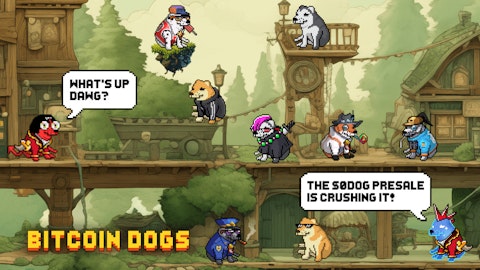Alex Shen: I think there’s a two-part answer to that question. As we implement and execute some of the deferred maintenance we are winning. So we illustrated one win. Okay. The other piece of it that is not so apparent is the ability to hold the line and not let it back slide is the other piece that’s a hidden piece and not so apparent to any of us that are not in the execution and operational role of running these machines and making sure they don’t backslide and fall apart again. That piece is going pretty well meaning if you compare our performance to a quarter — quarter-by-quarter comparison to a year ago. A year ago we were negative 2% of net sales and we’re able to hold that despite the mishaps that were — that happened this fiscal year from last — from the quarter a year ago.
I’m not sure I’m coming across very articulately right now. But the point is, this quarter negative 3%, essentially, breakeven. The quarter a year ago was 2% also essentially breakeven. We are attempting to not only fix and implement deferred maintenance, but whatever gains we have our job is to hold the line and not let it back slide. And that piece of it seems to be going well. We just need to continue to repair what we can to make sure that whatever is repair doesn’t backslide. How does that translate into what inning we are? I’m not able to quite tell yet to be honest. But we’re more ahead than behind. With the recovery of Ranor it took a number of years. We are in the third year now with the Stadco acquisition. So I think there should be more good things to come.
We need to also timing-wise it would be good. And also product mix wise it would be good for our customers to really support us by giving us business that dovetails into the high throughput machines that we’ve recovered. So, if we can highly populate the electron beam welding team, that would help quite a bit. But the good — that’s the good part. Will they do that? They are doing that to a certain extent. We need more of it. So, at the very least, we now have equipment and people that are ready to take on much more than we ever have before in the history of Stadco in certain pieces and certain work centers. I’m sorry for the very long explanation but I’m trying to give color and trying to build a bridge.
Mark Gomes: Don’t ever apologize for giving a long-winded answer. I think the communication that you’re providing on this call is reminiscent of a few quarters ago when you started a move in that direction. And trust me the feedback from the substantial number of folks that own the stock due to my coverage, it waxes and wanes with your communication and on this call it’s greatly improved and I appreciate that and I’m sure they will as well. Thank you.
Alex Shen: Thank you.
Operator: The next question comes from Richard Greulich with REG Capital Advisors. Please proceed.
Richard Greulich: Good afternoon. First of all, I apologize. I was only able to get on the call about five minutes ago. So, I may be covering something that was covered. The first thing I heard was when Ross was saying even if you double your shares that’s great whatever. Have you discussed at all shares or debt financing?
Alex Shen: Again as I alluded to earlier, I’ve been instructed to not speak about the potential acquisition.
Richard Greulich: Okay. Who is the firm or the firms that are you working with you on the financing?
Bobby Lilley: I think for anything that you have for the potential acquisition, you need to refer to the press release that just went out. And it stays in there what we can say and are saying at this time.
Richard Greulich: Well, this is the first time I’ve ever heard somebody making — looking to make an acquisition without naming the brokerage firm or the adviser that’s helping them obtain financing. Could you say that who that is?
Alex Shen: I cannot at this time.
Operator: The next question comes from Ross Taylor with ARS Investment Partners. Please proceed. Ross, your line is live.
Ross Taylor: I wanted to touch on a couple of things go quick. I’m not sure I should come back and ask the questions after I got the way of reviews. But Alex, V-22 tiltrotor Osprey has been grounded for some time. The program is deeply troubled at this point. The Navy and Marines are flying their CH-53Es at a much higher rate. It was my understanding that those airplanes have been hours-limited before. I know the Israelis hour-limited theirs. Are you seeing business coming back into Stadco for the CH-53E?
Alex Shen: I can tell you that we have — we see business for D, E and K.
Ross Taylor: Okay. Okay. I actually know a K flew over my house on Saturday rather I thought that was interesting big and actually surprisingly quiet. So that is a real positive situation developing there in that. Second is, we’ve seen some of your peers talk about the availability of funding whether it be from the Federal Government. The government is working very hard to build out its Defense Industrial Base infrastructure. Talking to people in your industry, there are a lot of small companies, sub-$100 million dollar companies many of which are in positions like you are. Is the Federal Government or are your customers legitimate sources of financing should you need it for work or not for financing the acquisition, but for actual operational work?
Alex Shen: I think I’m allowed to say, on this next piece. So I would re-characterize that as customer-funded CapEx.
Ross Taylor: Okay. And that is available to you. And you’ve made it…
Alex Shen: That has been made available and partially executed.
Ross Taylor: Okay.
Alex Shen: I’m sorry Ross by Ranor.
Ross Taylor: By Ranor. And when you — yeah which makes sense. When you do that, does that come with backlog? Or does that come with a promise of future backlog?
Alex Shen: Well, I think it would be foolish to have funded CapEx to our company and not give them anything to do.
Ross Taylor: Well, technically backlog is — there’s a technical definition of backlog. You have your definition and the like. So they might well basically — obviously they’re giving it to you to do something but it might be — is it something that actually shows up in your $50 million plus backlog which by the way it’s nice to see you finally get to that number? Or is it something that…
Alex Shen: I can answer that question very clearly. The — it does not show up as backlog, because our definition of backlog is actual purchase orders for components that we manufacture.
Ross Taylor: Yeah. And that’s what I was getting at. So you have that, but it’s likely that you have more — that you have a — and it is clear from what you laid out earlier this month on the three years that you have visibility well beyond this year and that is why you’re confident. And that is why this deal in the end. When it gets done a year or two years three years out will actually not appear to be a step over the line and a moment of insanity but actually a rather smart transaction that changes the fate in the future of this company in a favorable fashion?
Alex Shen: Yes sir.
Ross Taylor: Okay. I’ll give it back to someone else. Thank you, sir.
Alex Shen: Thank you.
Operator: We have reached the end of the question-and-answer session. I’d now like to turn the floor back to Alex Shen, for closing remarks.
Alex Shen: Thank you everyone. Have a great day.
Operator: This concludes today’s conference. And you may disconnect your lines at this time. Thank you, for your participation.
Follow Techprecision Corp (NASDAQ:TPCS)
Follow Techprecision Corp (NASDAQ:TPCS)
Receive real-time insider trading and news alerts





